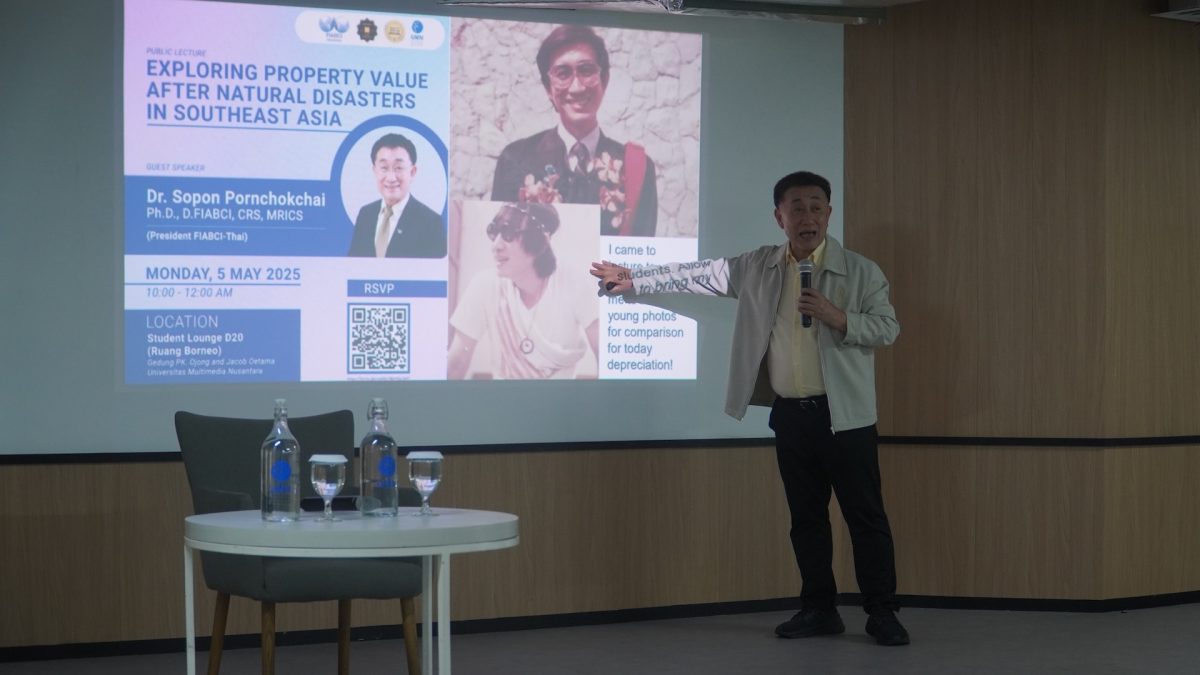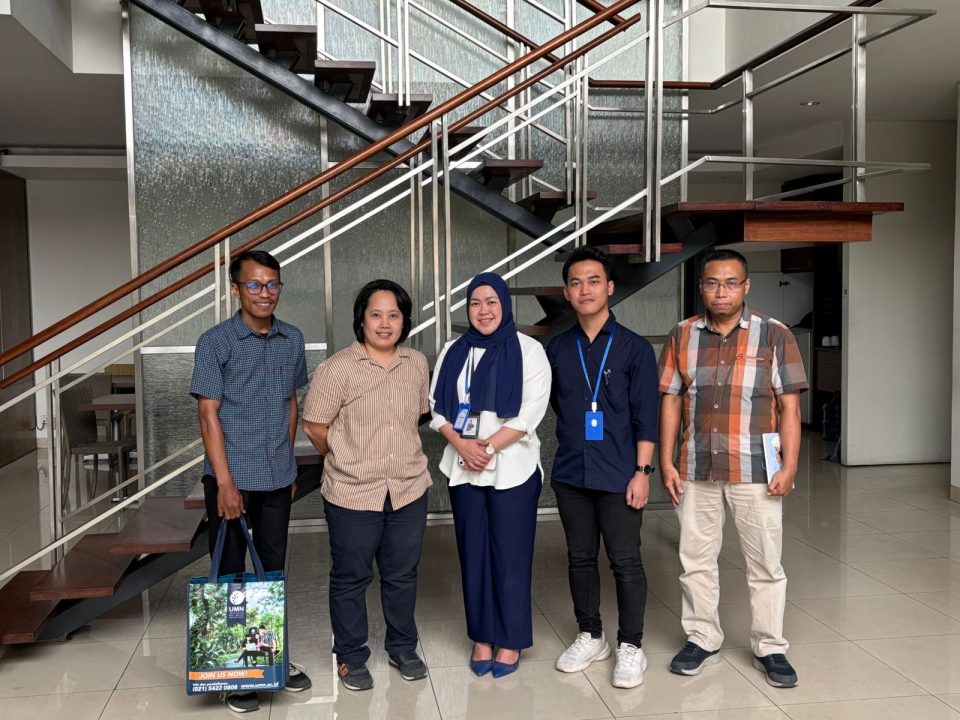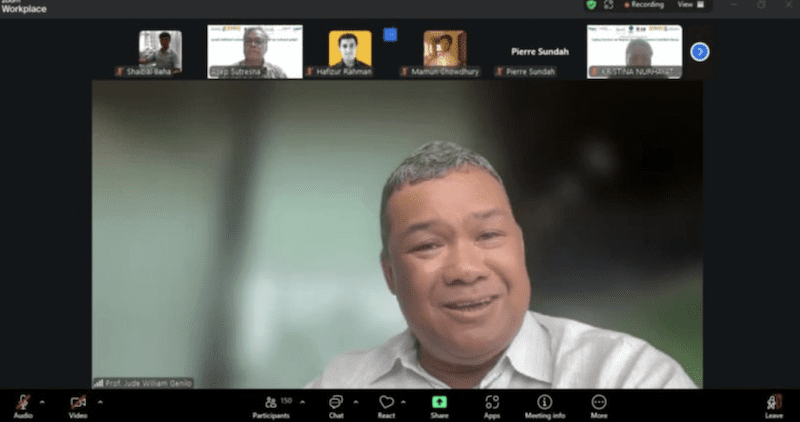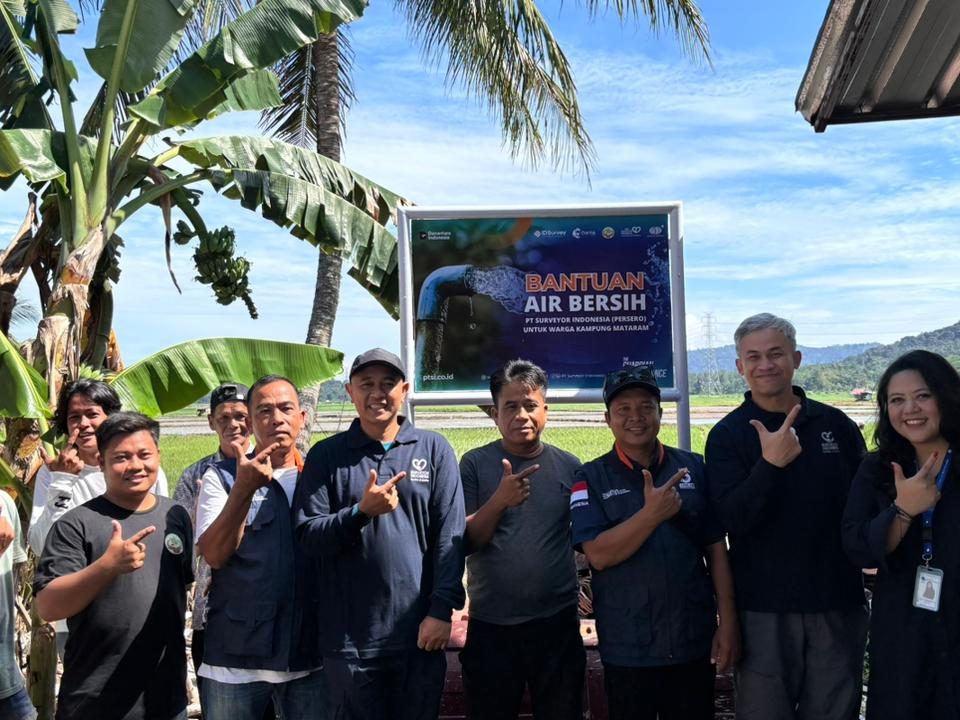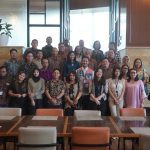
Halal Bihalal UMN 2025: Strengthening Friendship and Commitment to Educational Innovation Towards a World-Class University
May 12, 2025
Visinema Producer Novia Puspa Sari & Actor Kristo Immanuel Attend The 16th UCIFEST Sinetalk
May 21, 2025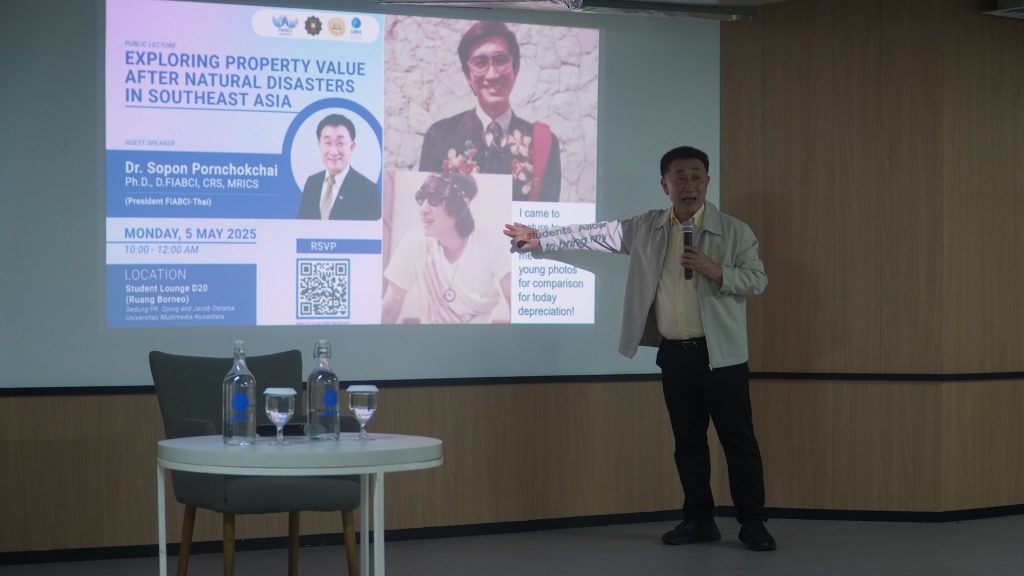
Guest class with Dr. Sopon Pornchokchai, Ph.D., D.FIABCI, CRS, MRICS, Presiden FIABCI, Thailand (Dok. UMN)
TANGERANG – On Monday (5/05/2025), Universitas Multimedia Nusantara’s (UMN) Architect Professional Education (Program Studi Profesi Arsitektur/PPAR) conducted a public lecture discussing exploring property value after natural disasters in Southeast Asia. The public lecture invited Dr. Sopon Pornchokchai, Ph.D., D.FIABCI, CRS, MRICS, the President of FIABCI, Thailand.
According to FIABCI’s official website, Sopon has had experience in real estate research and valuation since 1982. He teaches valuers, brokers, developers, financiers, planners, and consultants at undergraduate and graduate levels in Thailand and abroad. Currently, Sopon is the President of FIABCI Thai, the Thai Appraisal and Estate Agents Foundation, and the Agency for Real Estate Affairs, IAAO representative to Thailand, Director of Thai Real Estate Business School, and a member of the Global Valuation Forum of the Appraisal Foundation (USA).
Sopon started his presentation by sharing some case studies in various countries and cities throughout Southeast Asia and how they affected property values. One case he mentioned was the 2004 devastating Indian Ocean Tsunami that affected 13 Asian and African countries. He started by sharing how Aceh was affected, showing pictures of the buildings before and after the tsunami, and an interesting fact.
“After the disaster, many people may panic, they may sell their land or house at a very low price. With the case of Aceh, the price (of property) goes up because of a lot of international aids. Many NGOs come and spend a lot of money there,” Sopon shared.
He also shared how Phuket, Thailand, was affected by the Indian Ocean Tsunami. 5,300 people passed away, and for the first year after the incident, many people didn’t dare to go to Phuket.
“Many are afraid of ghosts,” Sopon said. Many news cycles reported increased ghost sightings in Phuket after the incident (read an article about it here). He then continued sharing other case studies of the countries he had visited to conduct surveys, showing how land prices increased thanks to reconstructions, renovations, and other factors.
After Sopon’s presentation, a Q&A session was conducted. Various interesting and important questions were asked, such as the changing perspectives on property ownership, economic sustainability, and community development, the role of the Government in property value recovery, the long-term effects of natural disasters on property values, and more.
After the public lecture, Sopon encouraged the students by emphasizing the importance of lifelong learning for professional growth, and nobody is too old to learn something new.
“I am 67, whenever there is something new like AI and the like, it is very difficult for me to learn, but we need to learn for the sake of our professional growth. We need to keep learning to be more modern and positively contribute to society,” Sopon said.
In conclusion, despite predictions that property values would decline after natural disasters, they continue to rise thanks to the injection of funds and the removal of economic activities. Any decrease in property value after natural disasters is more likely caused by global financial conditions.
The public lecture concluded smoothly, leaving students with valuable insights into Southeast Asia’s complex relationship between natural disasters and property values. Dr. Sopon Pornchokchai’s engaging presentation and real-world case studies sparked thoughtful discussions, while the interactive Q&A deepened participants’ understanding. The event enhanced academic knowledge and inspired students to embrace lifelong learning in their professional journeys.
By Levina Chrestella Theodora
English translation by Levina Chrestella Theodora
Kuliah di Jakarta untuk jurusan program studi Informatika| Sistem Informasi | Teknik Komputer | Teknik Elektro | Teknik Fisika | Akuntansi | Manajemen| Komunikasi Strategis | Jurnalistik | Desain Komunikasi Visual | Film dan Animasi | Arsitektur | D3 Perhotelan , di Universitas Multimedia Nusantara.

